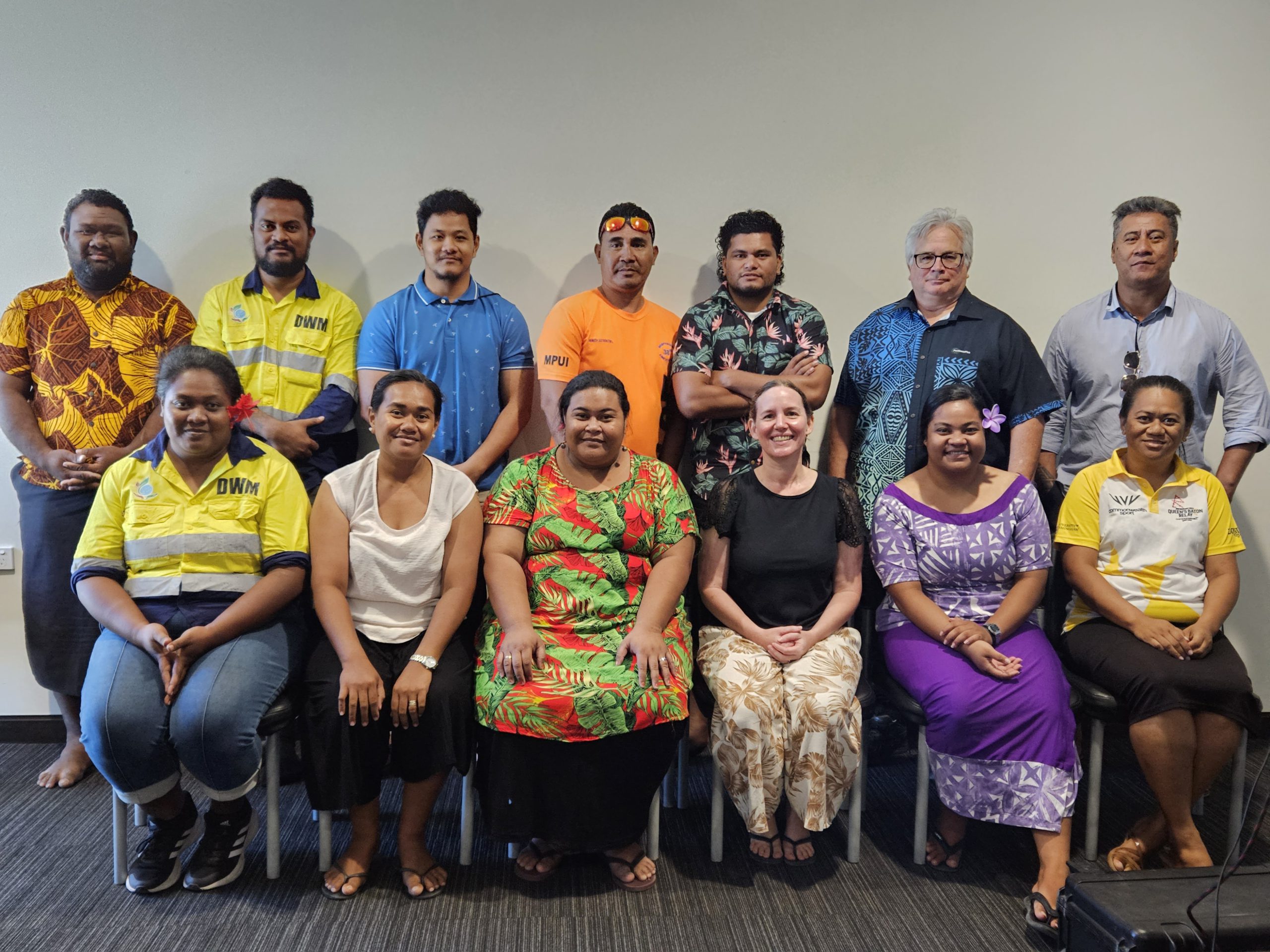News - Apr 13, 2023 Tuvalu Department of Waste Test Innovative Asbestos Analyzer
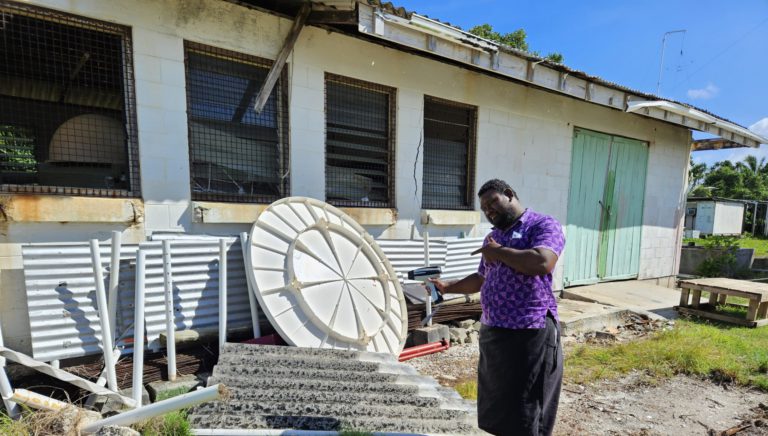
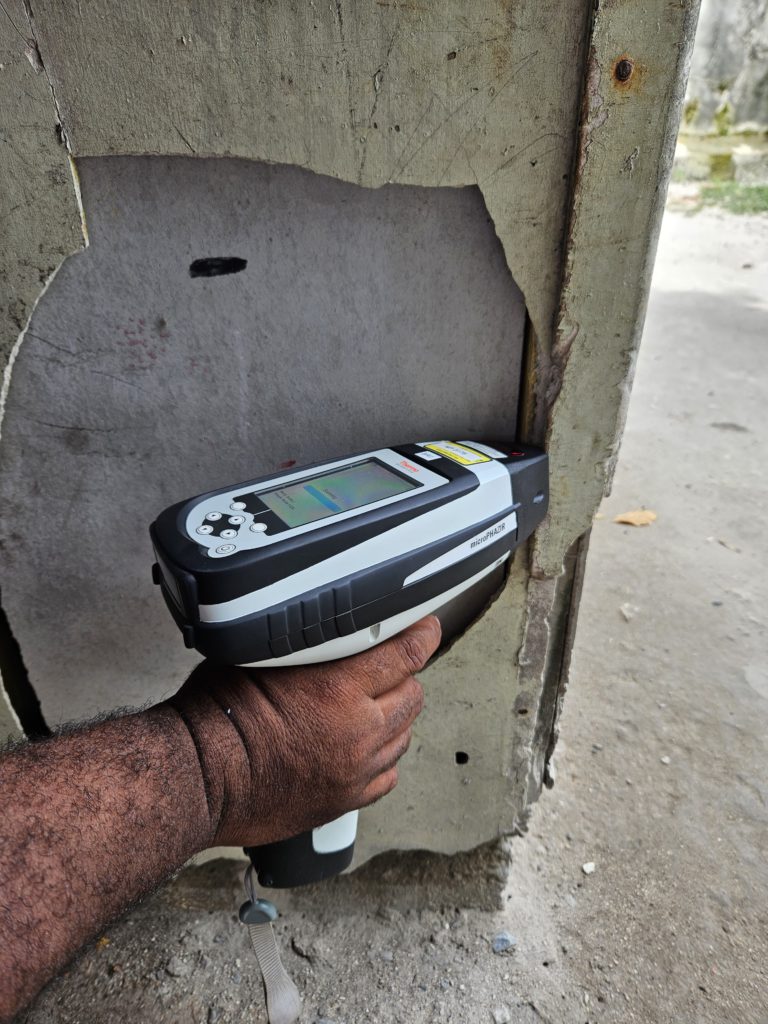
The Tuvalu Department of Waste Management (DWM) tested a new diagnostic tool, called the microPHAZIR AS Asbestos Analyzer, with the assistance from the PacWaste Plus programme technical officers and supported by consultant Ms. Samantha O’Callaghan of HIBBS, during a Mission to Tuvalu in late March.
This innovative tool enables in-field, rapid screening, to identify and confirm the presence of asbestos in under 10 seconds, and identification of all six types of regulated asbestos fibers which include chrysotile, crocidolite, anthophyllite, tremolite, actinolite, and amosite.
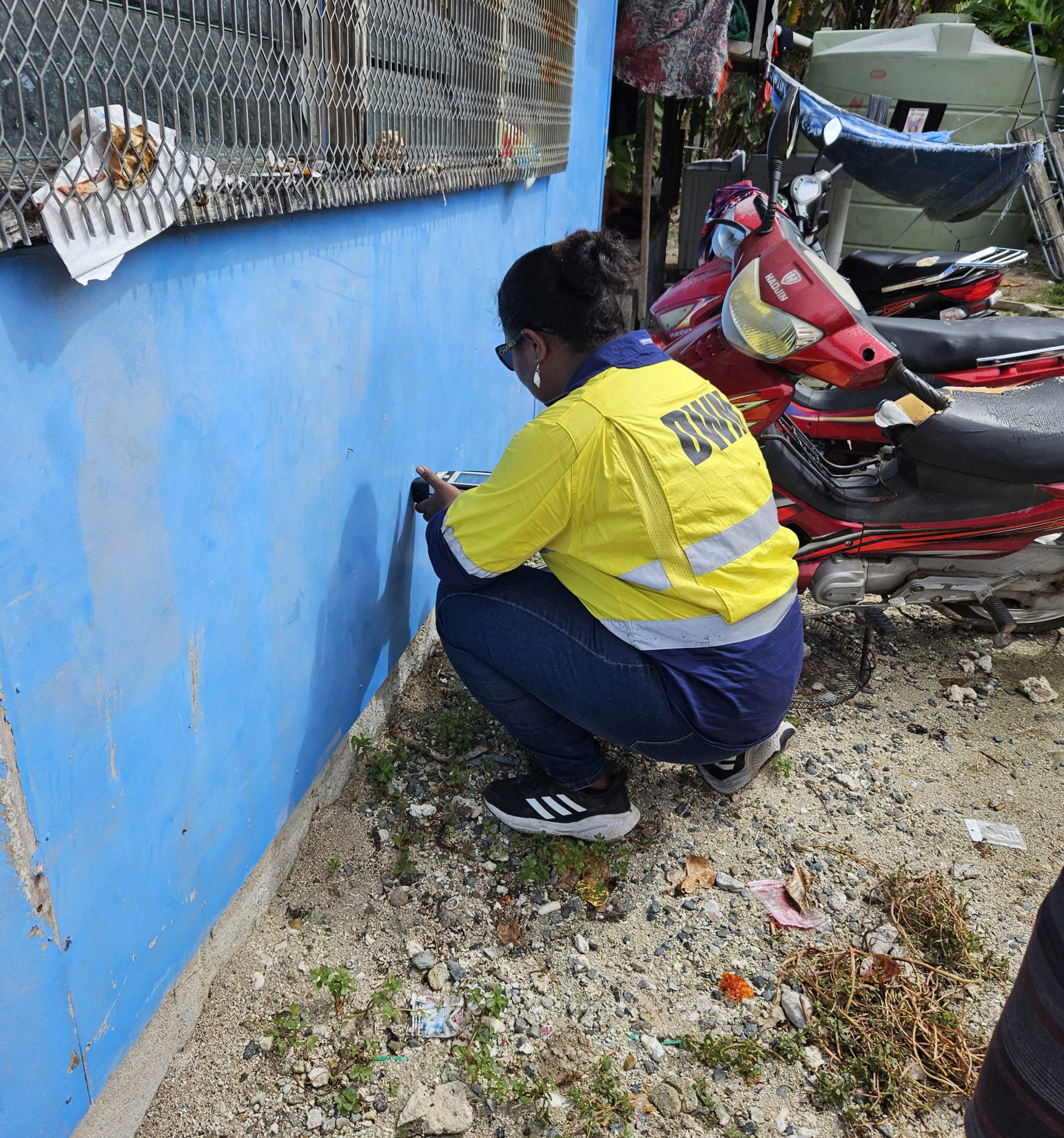
Prolonged exposure to asbestos increases the risk of developing lung disease, from asbestos fibers released into the air by the disturbance of asbestos-containing material during product use, demolition work, debris from natural disasters, building or home maintenance, repair, remodeling, and the recycling of construction materials.
To help understand the location and quantity of asbestos throughout its nine islands and to better manage asbestos removal from communities, the Tuvalu DWM is proposing to utilise PacWaste Plus investment for a project to enable their department to use this new technology to determine asbestos in “real time” which may reduce reliance on expensive and lengthy laboratory assessments overseas.
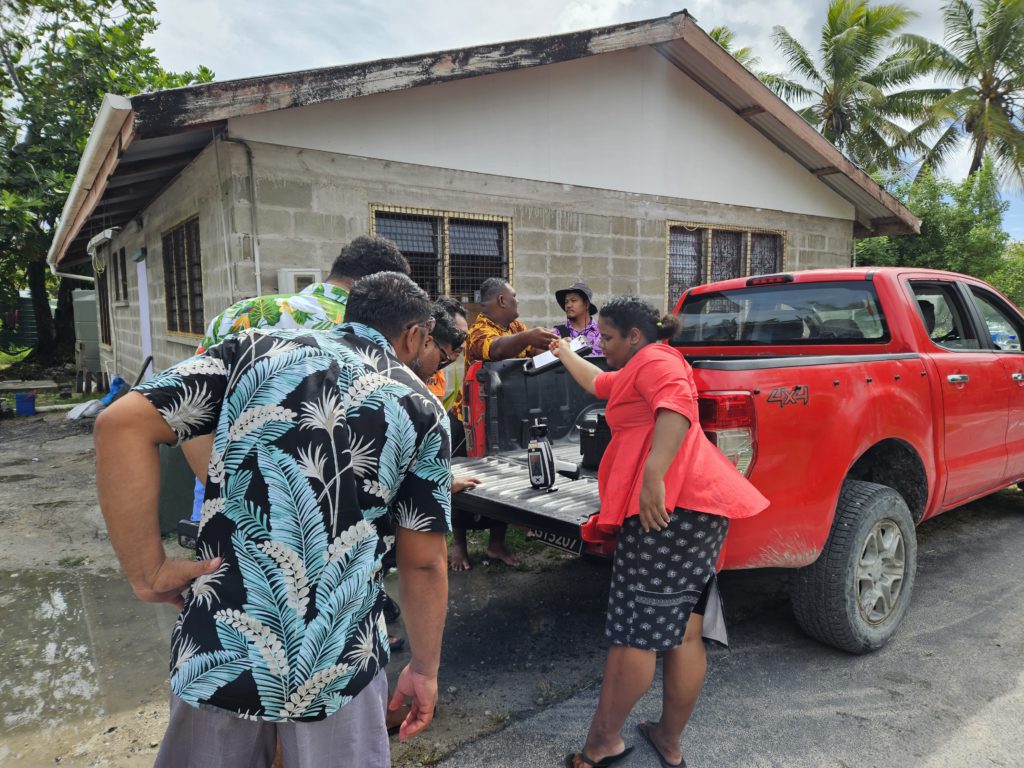
“Undertaking asbestos assessments is very difficult in Tuvalu. We do not have laboratory equipment and it is difficult and expensive for external specialists to visit our outer islands to complete assessments,” said Mr Epu Falenga, Director of Waste Management.
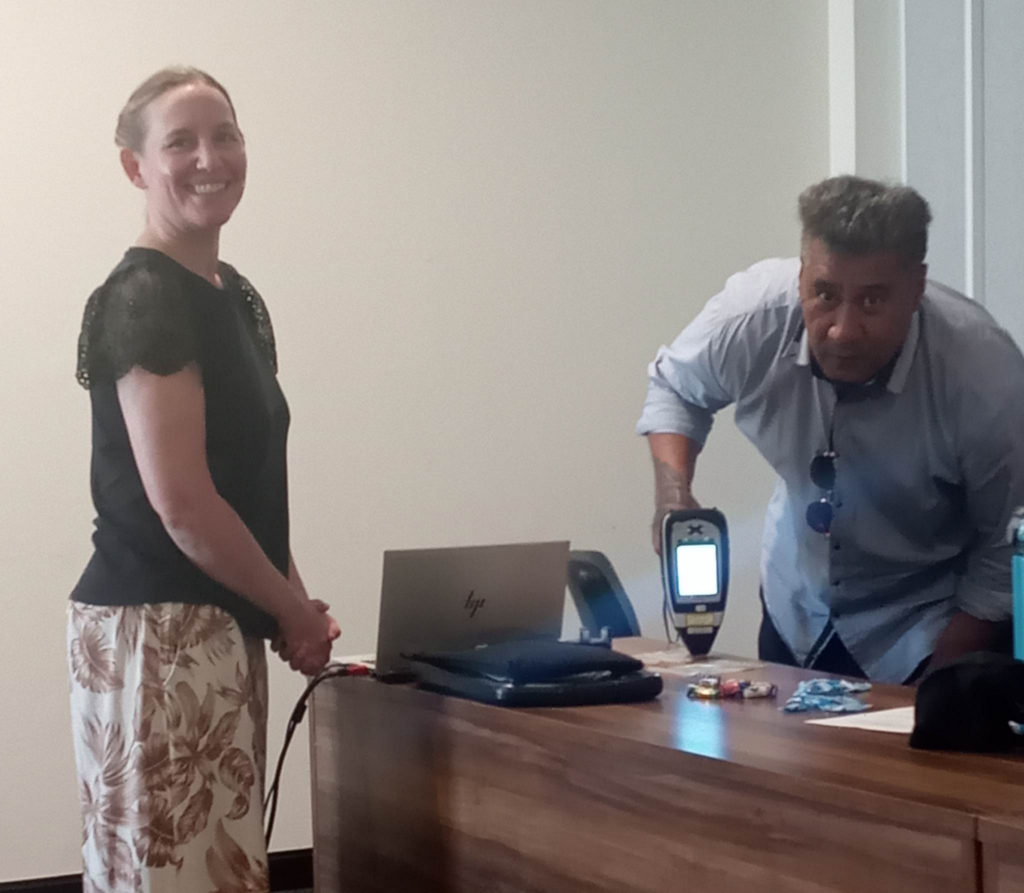
“By testing this new technology and having our own staff experience the various steps to effectively undertake asbestos sampling, empowers us to roll out an assessment ourselves across our nine islands. Once we know the location and quantity of asbestos, we can make a plan to remove it, ultimately cleaning Tuvalu of asbestos”.
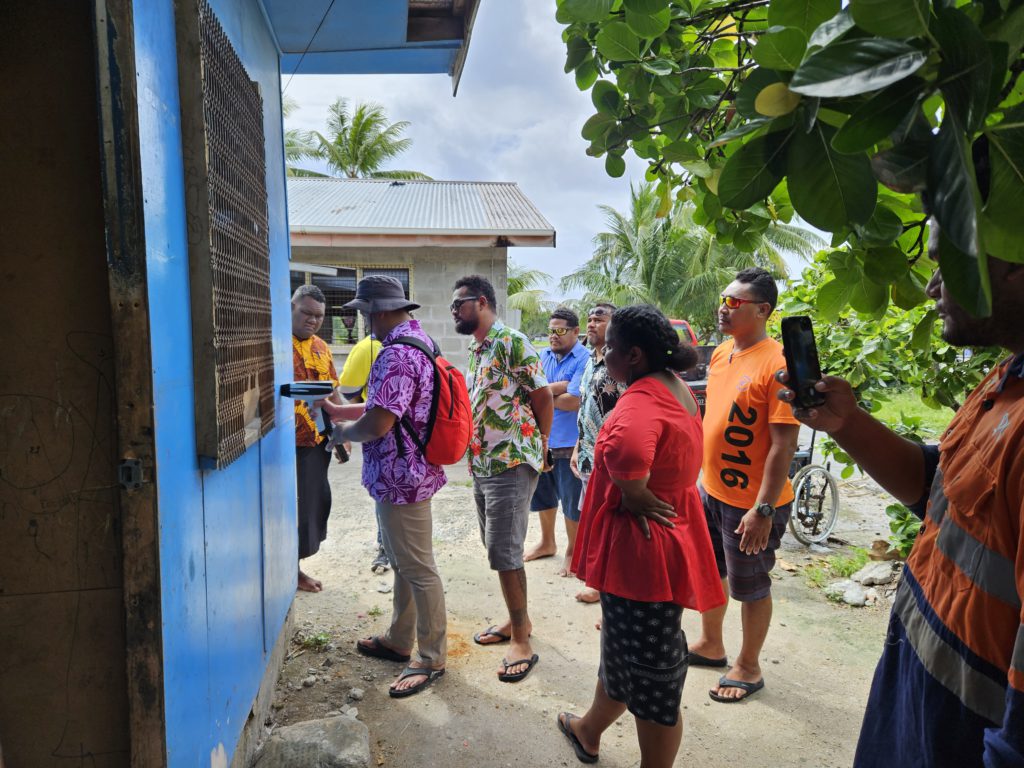
The DWM Director expressed that while they are excited about testing the new rapid diagnostic tool and the many benefits it may bring to help improve asbestos management initiatives, it is essential to first determine the usefulness of this tool in the Pacific environment by confirming test results from Tuvalu.
“We need to be certain on the efficacy of this tool, especially in our island settings and for that we will require further comparative analysis of results and deliberations with our key stakeholders before a strategic decision can be made to procure this analyzer,” added Mr Falenga.
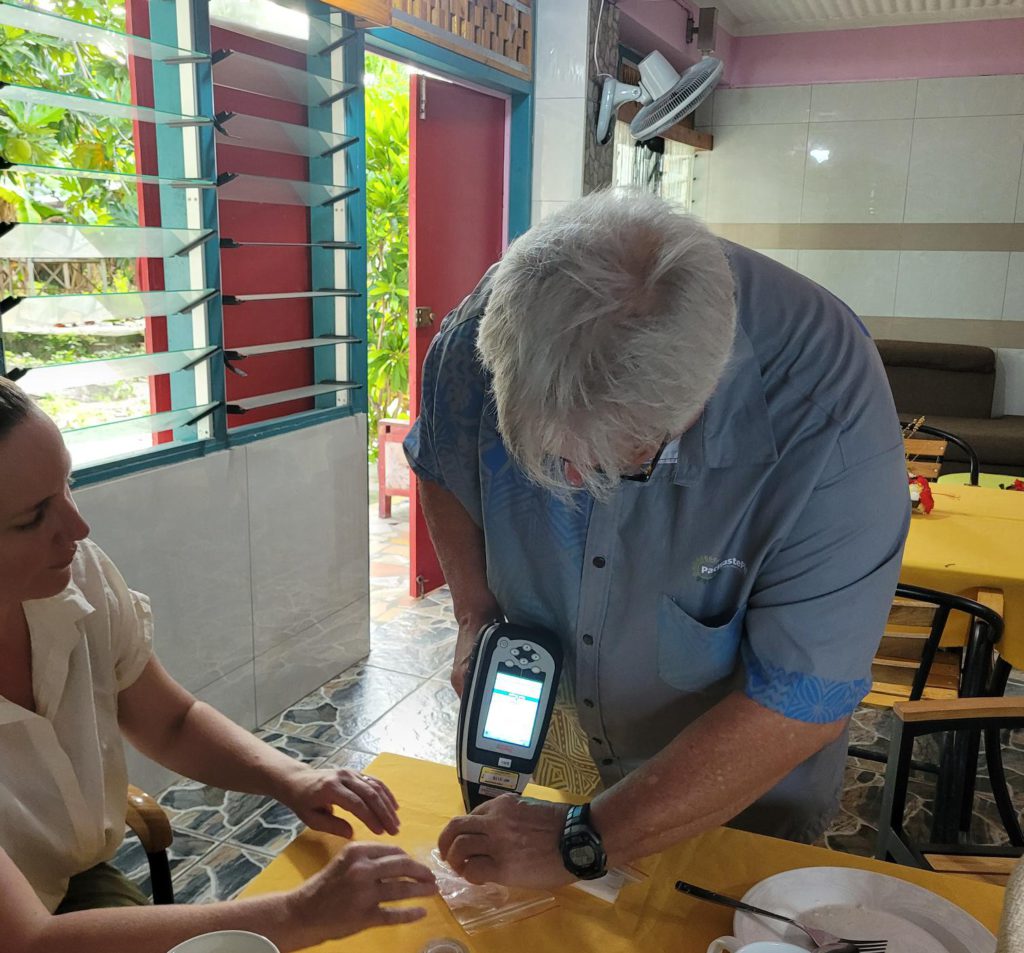
To ensure the effectiveness and accuracy of the microPHAZIR Analyzer, Ms O’Callaghan also took asbestos samples from tested materials in Tuvalu which will be analysed by a laboratory in Australia to compare and confirm test results.
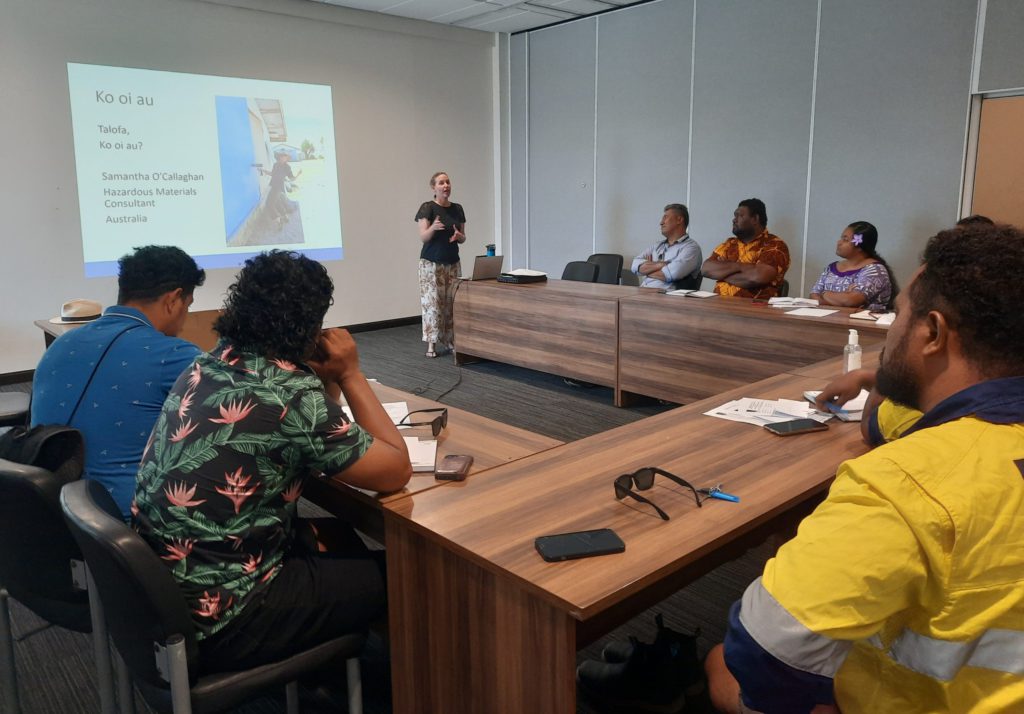
As part of the testing exercise, a capacity building workshop, on the correct way to use the rapid diagnostic tool was delivered by Ms. O’Callaghan to staff of the Tuvalu DWM, along with 10 other government stakeholders from the Department of Customs and Department of Surveying.
A case study will be developed comparing the test results once available. This case study will be shared on the PacWaste Plus website when published.
